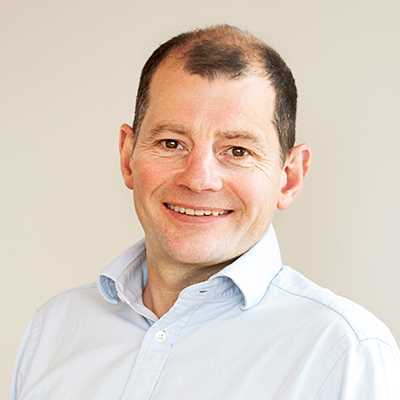This month SKAGEN Kon-Tiki celebrates its 20th anniversary. Named after the raft used by Norwegian explorer Thor Heyerdahl in his 1947 expedition across the Pacific Ocean, our emerging markets fund has been on a similarly eventful journey since setting sail on 5 April 2002.
Back then emerging markets were relatively unexplored compared to today and largely occupied by only the most adventurous investors. The term 'BRICs' was less than six months old and China had only recently joined the World Trade Organisation. Nevertheless, SKAGEN's founder and Kon-Tiki's first portfolio manager Kristoffer Stensrud saw the opportunities: "We created Kon-Tiki because from 1997-2001 the emerging part of our global portfolio was developing well and it was clear it was time to put more effort into seeing what's happening in those markets," he later explained.
Kon-Tiki became SKAGEN's third fund following Vekst (1993) and Global (1997), yet despite the optimism it set sail into stormy waters, as Stensrud later remarked: "Back then we had seen a triple crash. First there was the Asian crisis, stable earners collapsed, then we had the dotcom and tech crash in the spring of 2000." Kon-Tiki's launch coincided with Argentina and Turkey experiencing financial crises, causing the MSCI Emerging Markets Index to drop 30% in 2002 (Kon-Tiki fared better but still lost 26%)[1].
Thankfully, emerging markets stabilised the following year, Kon-Tiki recovered its losses by August and closed 2003 up 76% – its best calendar year return in absolute terms¹. The fund has since delivered positive absolute returns for investors in all but four years of its voyage.
Experienced crew
The fund is currently managed by Fredrik Bjelland and Cathrine Gether. Fredrik joined Kon-Tiki as a Portfolio Manager in 2017 following previous roles as Head of China, Special Mandates and Portfolio Manager at NBIM and Equity Research Analyst at Morgan Stanley. Cathrine joined as Portfolio Manager in 2009 after working as a Portfolio Manager at Millennium Capital Partners and a Managing Director at Carlson Capital.
Both also worked alongside the previous managers of Kon-Tiki, which provided a useful transition, as Cathrine explains: "Although the team has changed over the years, the philosophy has remained the same. We look for undervalued companies then invest with conviction to generate the best returns and the developing world remains a great place to find them."
Expanding horizons
Emerging markets represented only 5% of global equities when Kon-Tiki started out, a figure that has more than doubled to around 12% at present. China has grown from being the world’s eighth largest economy to the second biggest and the developing world's contribution to global GDP has grown from 44% to 58%[2], lifting many millions out of poverty and boosting life expectancy in the process.
Stocks markets have risen in tandem with the region's economic growth, gaining more than 300% since 2002 while Kon-Tiki has delivered returns of over 600% for clients who invested at launch¹. Much like Heyerdahl's voyage from Peru to Polynesia, however, it has often been a choppy journey with particularly deep drawdowns during the global financial crisis (2008) and coronavirus outbreak (2020). The once-heralded BRIC countries have also each experienced significant sell-offs at different times, most recently Russia.
SKAGEN Kon-Tiki has been able to navigate these difficult markets thanks to its focus on company fundamentals and value. Another important enabler has been its broad mandate, which unusually for an emerging market fund allows up to 50% of assets to be invested in developed market companies with emerging market exposure. "From the start we defined it as a fund with a focus on emerging markets but a mandate to invest everywhere", Stensrud explained. As well as riskier waters, this freedom has allowed the fund to avoid those with excessively high valuations which has been another feature of emerging markets since its launch, particularly during periods of risk-on.
These attributes and the fund's performance have helped Kon-Tiki to win numerous awards over its two decades, both in the Nordics and internationally, including the highest ratings from Lipper, Morningstar, Standard & Poor’s and Citywire.
Double discount
As Kon-Tiki turns 20, the immediate outlook for emerging markets, like most investment markets, is clouded by the terrible war in Ukraine. However, the long-term investment case has arguably never been better, particularly as valuations – the most reliable predictors of future returns – are increasingly attractive with discounts close to record highs. Emerging markets currently trade 35-45% below developed markets on a Price/Book and Price/Earnings basis, while the discount of EM value to EM growth is even steeper.
The Kon-Tiki portfolio is over 45% cheaper than the MSCI EM Index on earnings and book value multiples with estimated upside of 69%[3]. This bodes well for long-term performance, as Fredrik Bjelland concludes: "The last twenty years have been an incredible journey, both for SKAGEN Kon-Tiki and the exciting markets where it invests. We are confident that the voyage ahead will be similarly rewarding – particularly given the attractive 'double discount' of our diversified portfolio – and we look forward to delivering the best emerging market returns for our clients."
Footnotes:
[1] Figures in EUR, net of fees.
[2] Source: IMF World Economic Outlook database, October 2021.
[3] Based on top 35 largest holdings as at 27/03/2022: P/E 2022e, P/B last.




